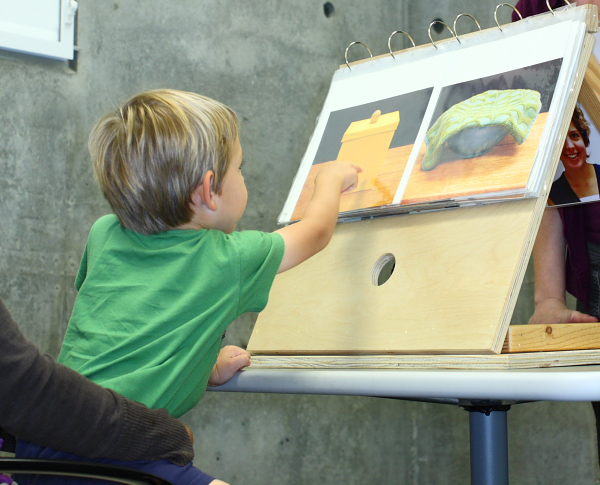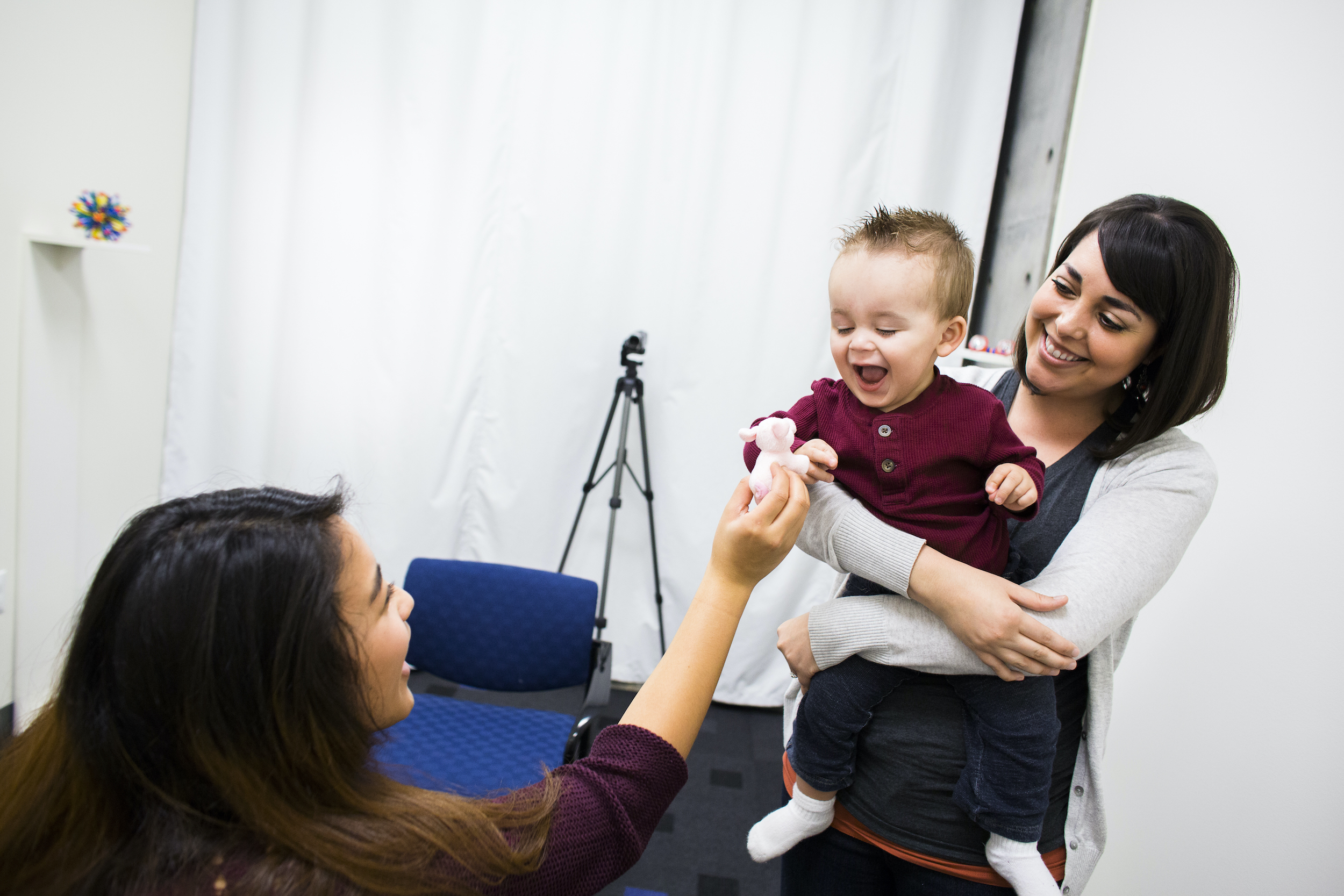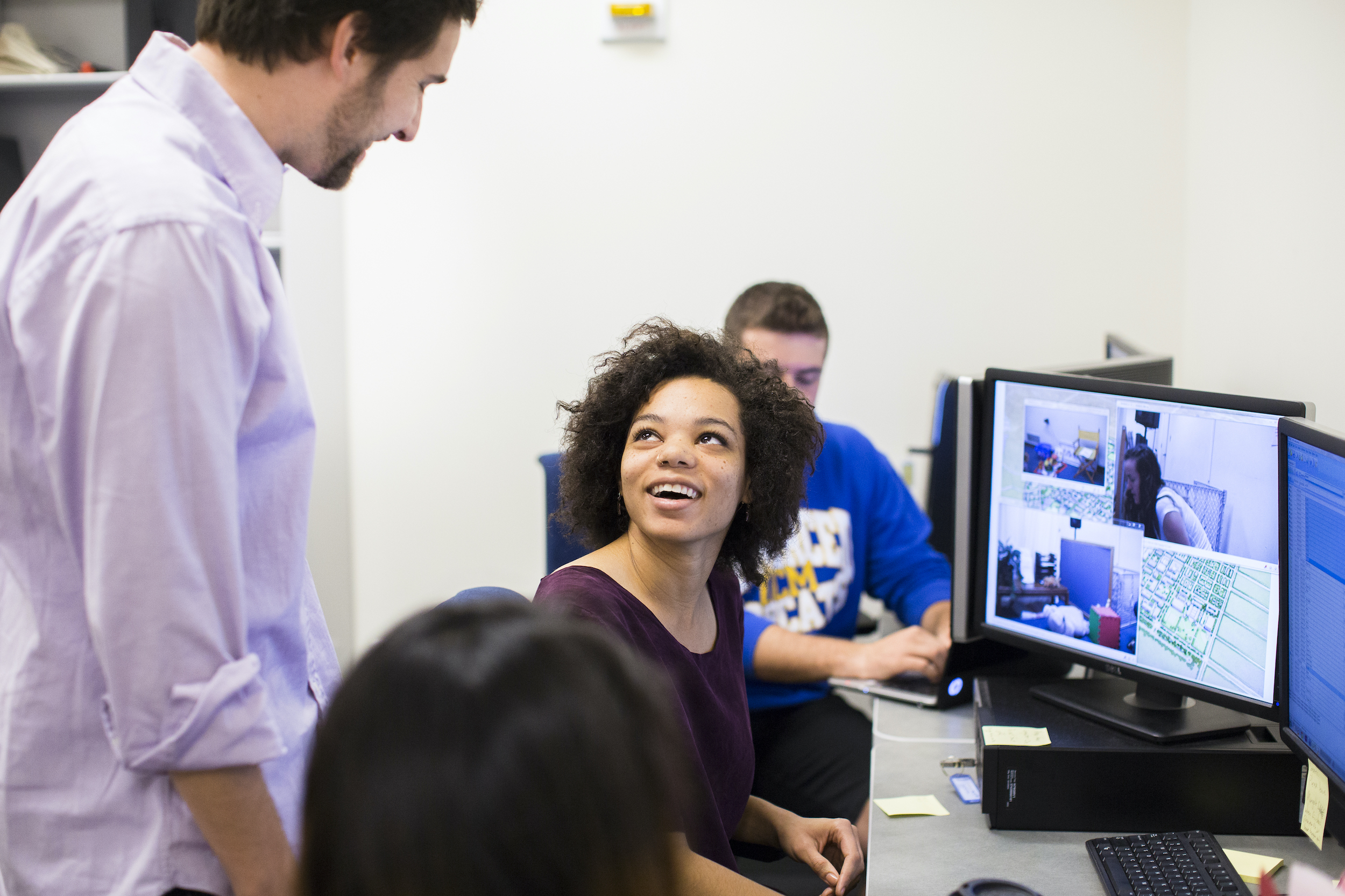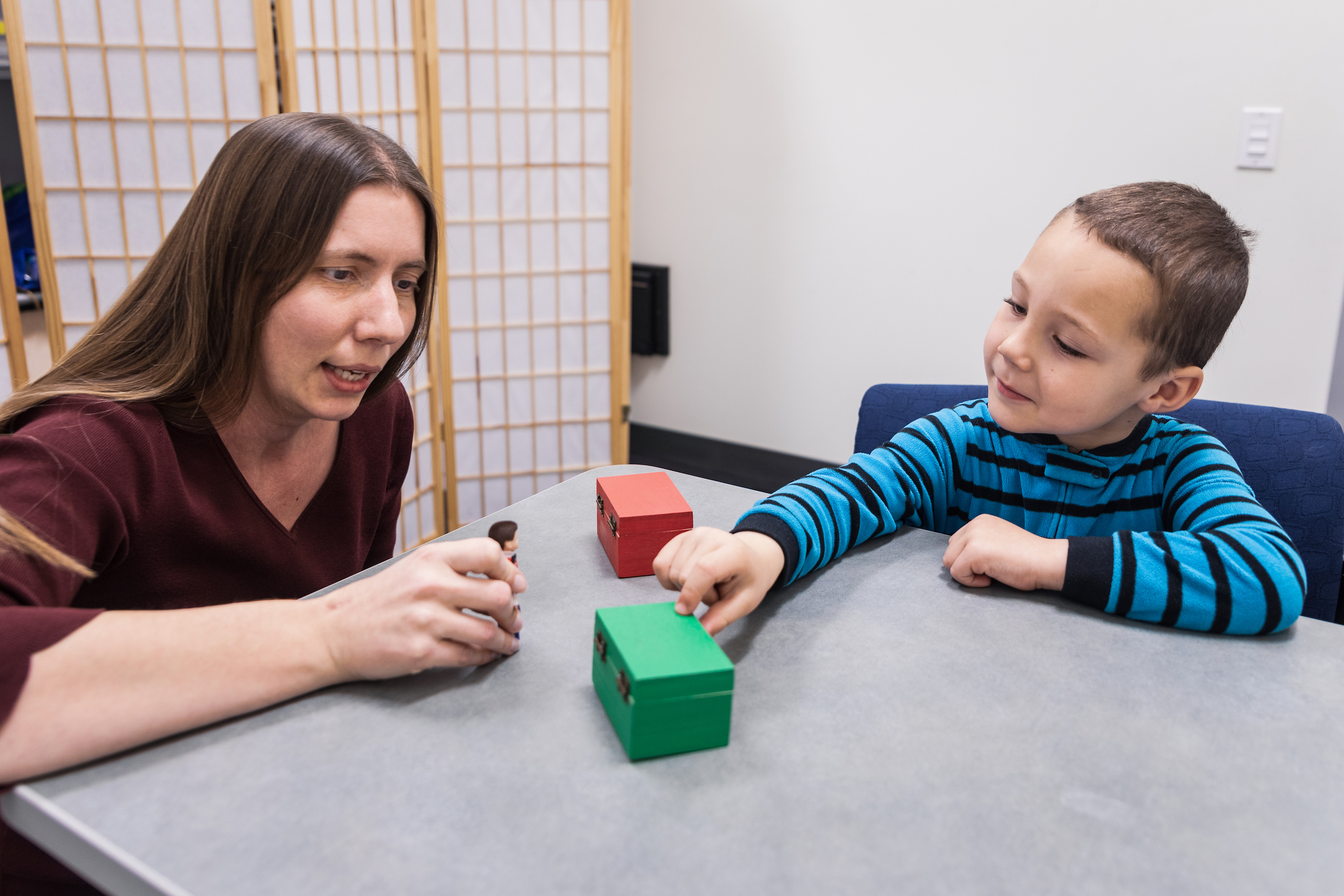All of our research studies are made possible by the generous participation of parents and children. We are always looking for more families that would like to help us explore how children learn and grow. Below are answers to some of the questions that you might have about participating in our research studies. If you have a question that is not answered here, feel free to contact us at familyresearch@ucmerced.edu and we will be happy to help you!
What are the studies about?
We explore many different topics, including how children learn language, how they understand and learn about emotions, how the learn to pay attention and ignore distractions, the development of social relationships, and the factors that influence children's mental health and well-being. Visit our Current Projects to learn more about some of the studies we are currently working on.
What are the studies like?
Each study is different. In some of our studies, children watch short videos, read storybooks, or plays games with a researcher. Other studies use safe techniques to record children's brain responses. Still other studies involve observing children during interactions with their family or at school. Many of our studies also use surveys that parents fill out.
Are the studies safe?
Yes! All of our studies are carefully designed to be safe and fun for children.
Do my child and I have to speak English in order to participate?
For some of our studies, your child must hear and speak English regularly in order to participate. However, many of our studies can be done in either English or Spanish, and some are open to speakers of all languages.
How do I sign up?
You can sign up for our contact list by completing our online form or contacting us via email at familyresearch@ucmerced.edu.
What will you do with my information?
When you sign up, your information is added to a database of families who are interested in being contacted about research studies. We will use your information to figure out which studies you and your family could participate in. When you are eligible for a study, a researcher for that study will get in touch with you via phone or email. The researcher will tell you more about the study, and you can decide whether or not you want to participate. Signing up for our contact list does not mean you have to participate in any studies - it's just a way to let us know that you would like to be contacted about potential research studies for your family. You can choose which studies you want to participate in, and you can decline to participate in any study.
Who has access to my information?
Your privacy is very important to us. Any information that you share with us will be kept strictly confidential. The only people who are allowed to access your information are researchers in our group who have received required training and have approval from the UC Merced Institutional Review Board. We will never share your information with anyone outside of our research group.
 How do I make a study appointment?
How do I make a study appointment?
If you sign up using our online form, we will contact you when there is a study that your child can participate in. We will describe the study to you, and then you can decide whether or not you want to participate. If you decide to participate, we will schedule an appointment at a day and time that works for you. You are also welcome to contact us at familyresearch@ucmerced.edu to ask about ongoing studies and schedule an appointment via email.
When are appointments scheduled?
Many of our labs are open Monday through Friday 9 to 6:30. Some of our labs are also open on the weekends. We will do our best to find a day and time that is convenient for you.
How long does an appointment take?
Study appointments typically range from 30 to 90 minutes. Although many of our studies only involve one appointment, some have multiple appointments. When you are eligible for a study, we will let you know the length and number of appointments involved so that you can decide whether you have enough time to participate.
Where will the study take place?
Many of our studies take place in one of our research centers on the UC Merced campus. Other studies take place at locations in the community, such as schools and daycare centers. Some studies you can do from home using your computer or tablet. When one of our team members contacts you about a research study, they will let you know the details about when and where the study would take place.
 If the study is on campus, where can I park?
If the study is on campus, where can I park?
You can park in the Le Grand parking lot, which is next to our building. If your study appointment is on the weekend, you can park anywhere in this parking lot for free. If you come during the week, you can park in any of the three spaces that have the sign "Reserved for Research Participants." The researcher in charge of the study will give you a Research Participant parking pass to put on your dashboard during your appointment.
Can I bring other children with me?
Absolutely! We work with a wide age range of children, so it is possible your other children will also be able to participate in a study while you are here. If not, they can play in our waiting room while their sibling completes the study. We always have extra research assistants here to watch and play with siblings during the study.
Will I be with my child during the study?
Yes, you can be with your child during the entire study.
Will there be any compensation?
Typically families are compensated for their participation in our research studies. This compensation could be a payment in cash, a gift card, or a physical gift such as books for your child. The amount of compensation varies and depends on what's involved in the particular study. When you are contacted about a study, the researcher will tell you the type and amount of compensation you would receive for that study.
 Will I find out the results of the study?
Will I find out the results of the study?
At the end of your visit, the researcher can answer any questions that you have about the purpose and goals of the study. Many of our studies take years to complete, so we might not be able to tell you the overall results of the study right away. However, we do regularly share the results of completed projects on our website, at community events, and via newsletters sent to parents.
How will the results of the study be used?
We share our findings with other researchers, educators, and policymakers in academic journals. We also share our findings with community members through family events. Our findings may be used to inform policy decisions in education, childcare, mental and physical health, and family wellbeing. However, we never share or publish identifiable information about specific children or families. Your information and responses are confidential.
Can I participate in more than one study?
Of course! We have a number of different studies going on at all times. We may have another study that your child is eligible for, or they might become eligible for new studies as they get older. Although parents often choose to participate in multiple studies, this is completely voluntary. Each study is separate and choosing to participate in one study does not mean you are committed to participating any other studies.
I have concerns about my child’s development. Will you be able to tell me whether my child is on track?
The studies we typically do are designed to tell us in general how children of a particular age are developing. Our studies do not provide diagnoses for the children who participate in them. Because we are researchers, not clinicians, we do not have the appropriate training or certification to diagnose or treat delays in individual children. If you have questions or concerns about your child's development, you should talk to your pediatrician.



